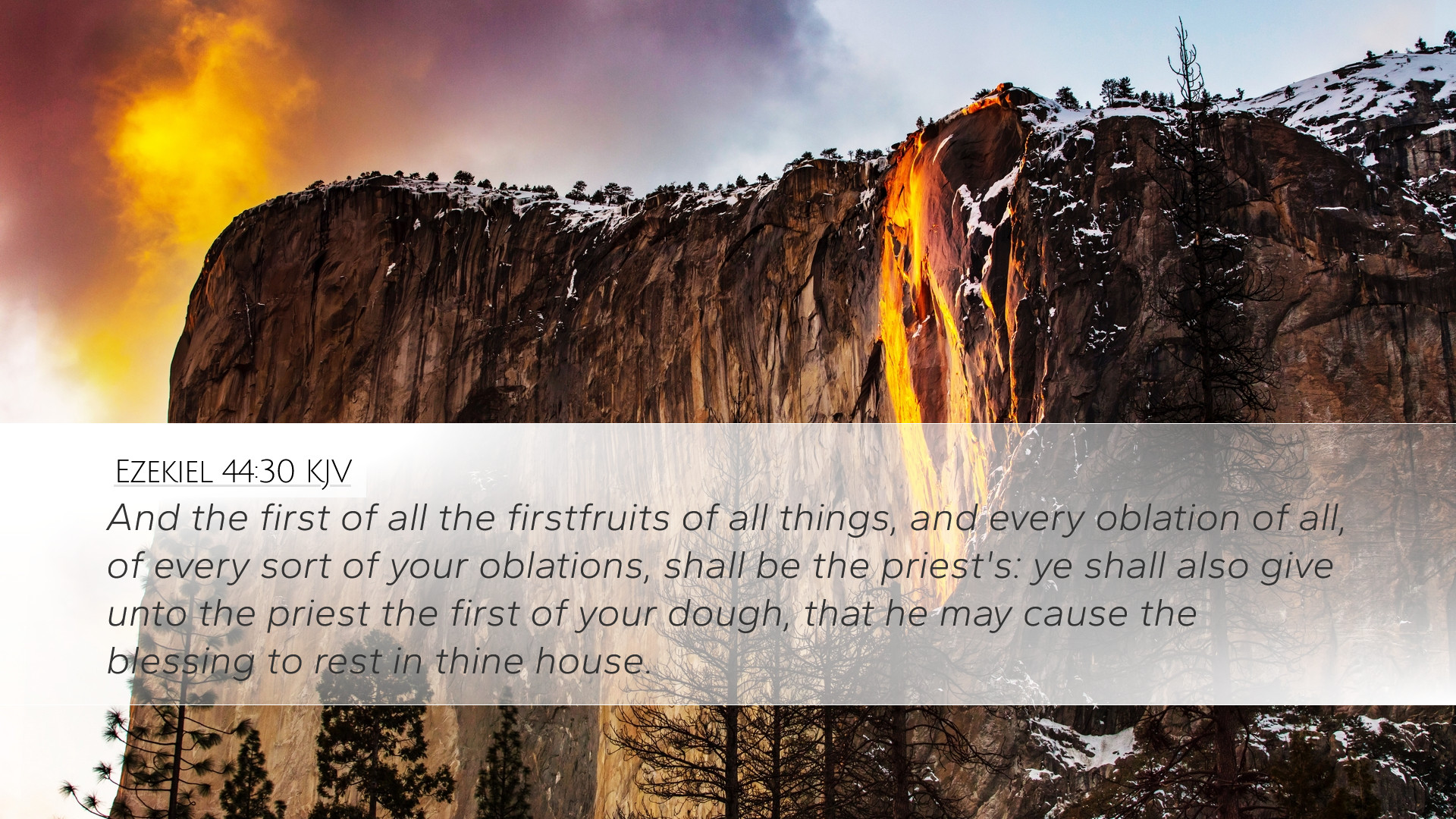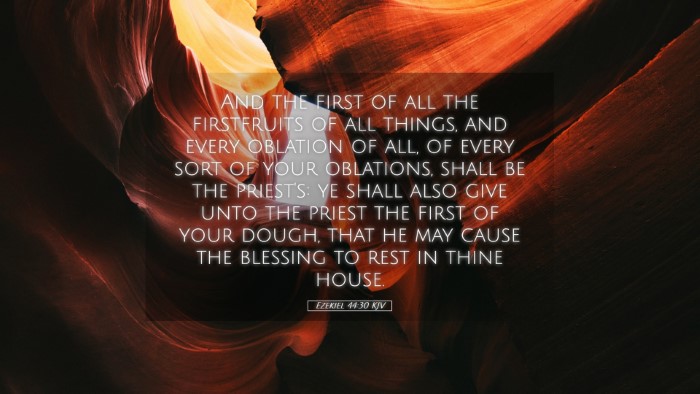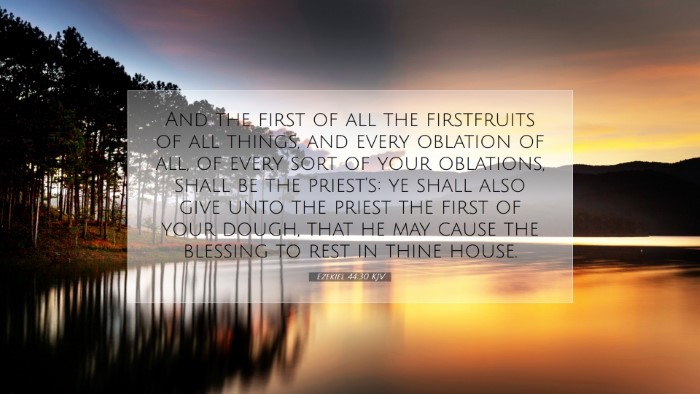Ezekiel 44:30 Commentary
Bible Verse: "And the first of all the firstfruits of all things, and every oblation of all, of every sort of your oblations, shall be the priests'; ye shall also give unto the priest the first of your dough, that he may cause the blessing to rest in thy house."
Introduction
The verse from Ezekiel 44:30 encapsulates significant themes regarding the role of the priests concerning offerings and the blessings of God. It highlights the importance of firstfruits and the necessity of prioritizing spiritual matters in our lives. This commentary seeks to introduce insights from notable 19th-century biblical scholars to offer a more profound understanding of this text.
Contextual Background
The book of Ezekiel addresses the Israelites during a time of exile. The prophet Ezekiel, through vivid imagery and prophetic utterance, seeks to convey God's messages regarding the temple service, holiness, and the expected conduct of His people. Chapter 44 specifically deals with regulations concerning the new temple and the roles of the priests and Levites.
Commentary Insights
Matthew Henry's Perspective
Matthew Henry emphasizes the importance of firstfruits as both a spiritual and practical principle. He notes that giving the first and best to God acknowledges His sovereignty and provision in our lives. Henry states, "God's priests are to be provided for by the people. This shared responsibility fosters a community relationship with God." The idea reflects a covenant relationship where the people's honor to God through offerings secures divine blessing upon their households.
Albert Barnes on Firstfruits
Albert Barnes elaborates on the theological implications of firstfruits in Hebrew culture. He writes, "The first of your dough" indicates a practice that transcends mere economics; it signifies an attitude of gratitude towards God. Barnes points out that this offering was not merely a duty, but a joyous acknowledgment of God's continuous provisions. He connects this to the ancient practice of dedicating the firstborn, which closely ties human experience to spiritual gratitude.
Adam Clarke's Commentary
Adam Clarke reinforces the necessity of such offerings for the priests, indicating that their sustenance depended upon these acts of generosity from the people. He writes, "Only those who offer to God are to partake in His blessings—there is a reciprocity in giving and receiving." Clarke also emphasizes the notion of blessings resting in the house, which he interprets as an assurance that God rewards those who honor Him. The verse serves as a reminder that a household devoted to God is marked by divine favor and security.
The Spiritual Significance of Firstfruits
Understanding firstfruits is not limited to an agricultural principle; it is deeply rooted in spiritual significance. Theological interpretations view firstfruits as symbolic of giving one's best to God and trusting in His continued provision. This action reflects a believer’s faith commitment, illustrating the importance of prioritizing God in every aspect of life.
- Gratitude: The act of offering firstfruits is an act of thankfulness for what the Lord has provided.
- Priority: It signifies putting God first in our lives, cultivating a discipline of giving back what is most precious.
- Covenant Relationship: It establishes a reciprocal relationship with God as His blessings follow obedience.
Conclusion
Ezekiel 44:30 serves as a profound reminder of the principles of giving and the blessings tied to it. As Henry, Barnes, and Clarke elucidate, understanding the nuances of this verse inspires one to foster a deeper relationship with God characterized by gratitude, priority on spiritual matters, and recognition of the priestly role within the community of believers. As pastors, students, and scholars engage with these insights, they are encouraged to reflect on their own practices of giving and the impact this has on their spiritual walk and community life.


